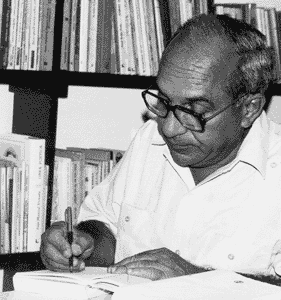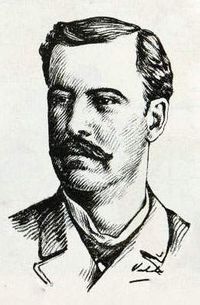
Havana ephemeris. 19th of June.
2011. The prominent Cuban writer and researcher Imeldo Álvarez dies in Havana.

He began in the world of theater with the actor and director José Antonio Escandón, and with Francisco Núñez, a set designer, editor and set painter. He worked as a prompter and on many occasions played secondary roles in some plays. He also wrote one-act plays to present on municipal stages, with fans. Later, when he moved to Havana and settled in the Marianao area, he joined Grupo Ariel and began collaborating with the weekly magazines El Sol and La Tribuna. In 1952 he went from collaborating to editor of El Sol de Marianao and administrator of the company that had been founded in 1908.
From 1959 he collaborates in the most important national publications, an activity that he shares with his work as a writer. In 1970 his book The smile and the other head won the Story Prize of the Union of Writers and Artists of Cuba. He wrote anthologies, critical studies and was editor-in-chief of Editorial Letras Cubanas. He continued to do research alongside editorial work. He was also one of the architects of the Cuban Friends of the Book Society. During the last six years of his existence, he continued to perform the functions of editor, foreword, researcher and advisor to the editorial area of the Center for Martian Studies. Due to his meritorious work, he received several awards and recognitions, including the National Edition Award that was awarded to him in 1999.
He was a member of the Association of Writers of the Union of Writers and Artists of Cuba and its Editorial Board. Together with other personalities, he organized the collateral activities of the Havana Book Fair for several years.
His birth was in the Amarillas area, in the province of Matanzas, on August 21, 1928.
1846. Antonio Zambrana Vazquez is born

He studied at the El Salvador school, directed by José de la Luz y Caballero, and in 1867 he obtained a degree in Civil Law.
The following year he began to give his contribution to the cause of Cuban independence. Incorporated into the insurgent forces of Camagüey, he was a member of the Assembly of Representatives of the Center, as part of which he attended the historic assembly held on April 10, 1869 in Guáimaro. Together with Ignacio Agramonte, he drafted the text of the Constitution that was approved there by the Cuban independence fighters. In 1873 he left for the United States to try to gain support for Cuba's independence cause. There he created the newspapers La Revolución and La Independencia. Later he visited several Latin American and European countries. Based in Costa Rica, he acquired great renown there as a jurist and professor, and in 1883 he was appointed Plenipotentiary Minister of that country in Nicaragua.
In 1886 Zambrana returned to Havana and five years later he returned to Costa Rica, where he dedicated himself again to the practice of Law and teaching.
In 1904 the Costa Rican Congress elected him as magistrate of the Cassation Chamber of the Supreme Court of Justice, a position for which he was re-elected in 1908 and which he held with great brilliance until his resignation in 1911. In that year he decided return to Cuba.
Later in Havana he founded the newspaper El Cubano. Zambrana produced important legal works, philosophical criticism, and several books.
His main work was the anti-slavery novel "El Negro Francisco" which opened a stage in the Cuban anti-slavery narrative.
His death took place in Havana on March 27, 1922.